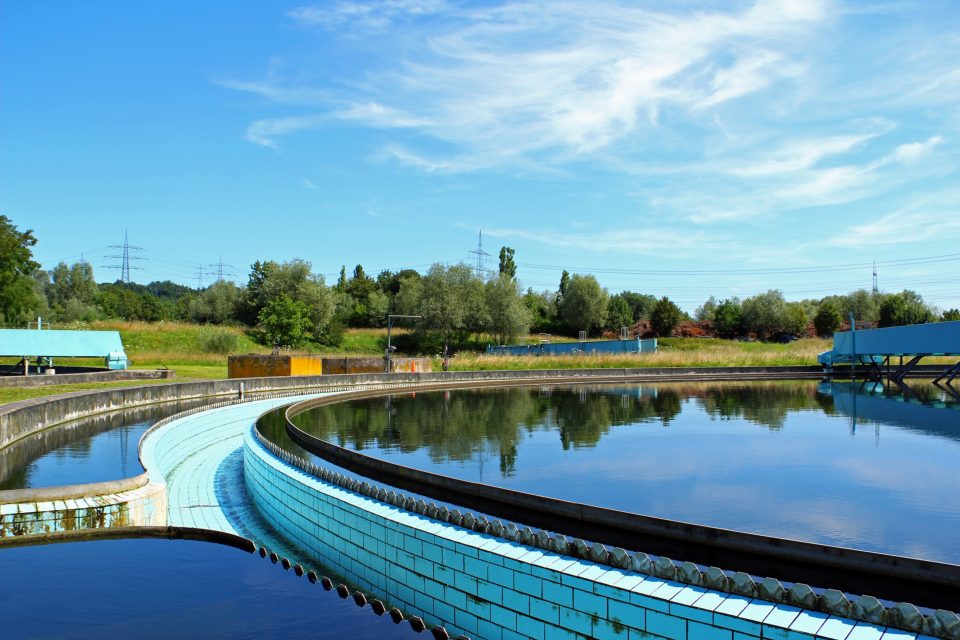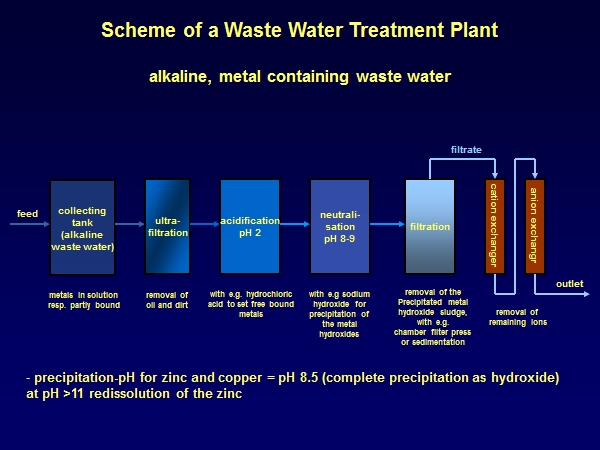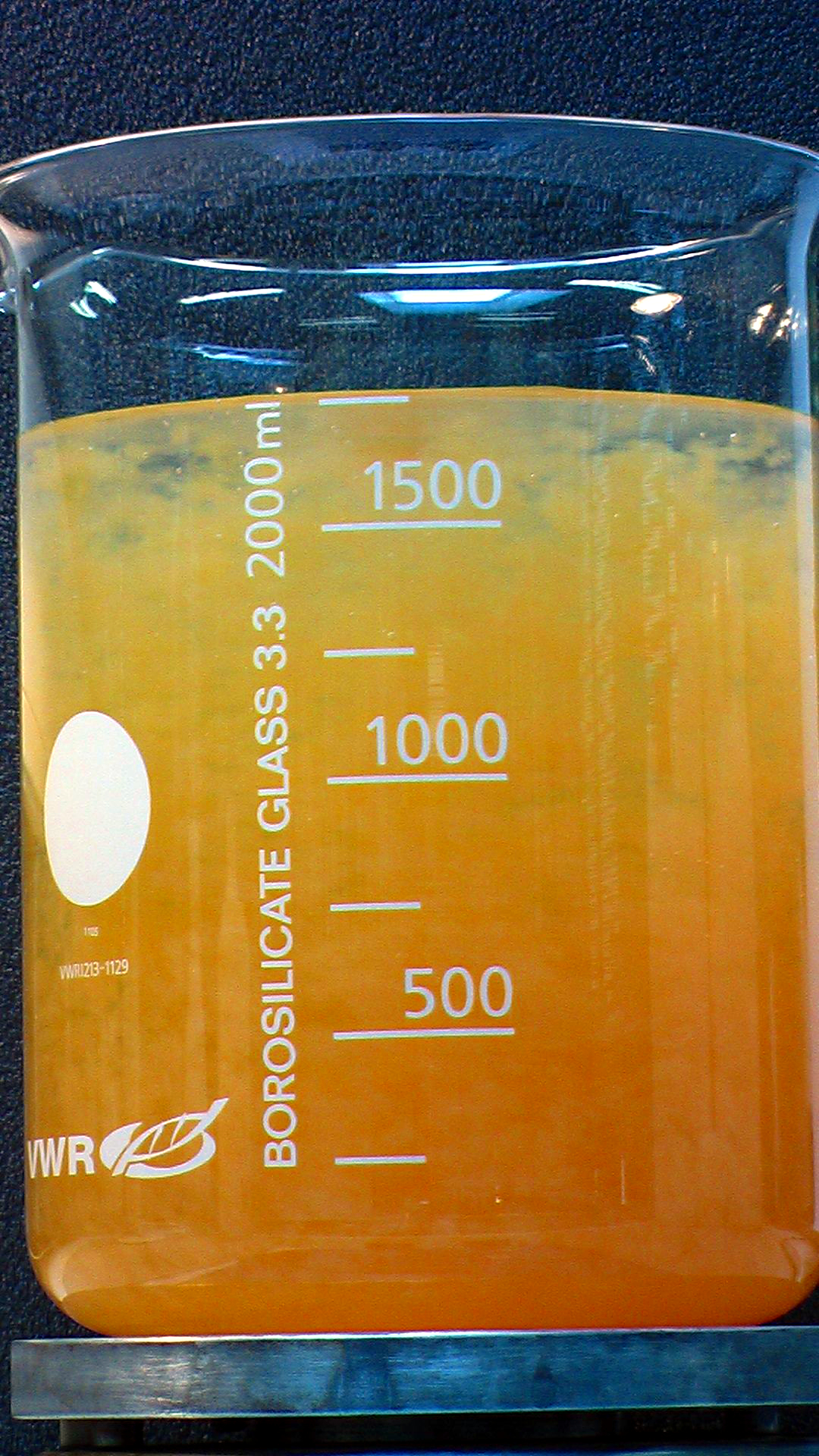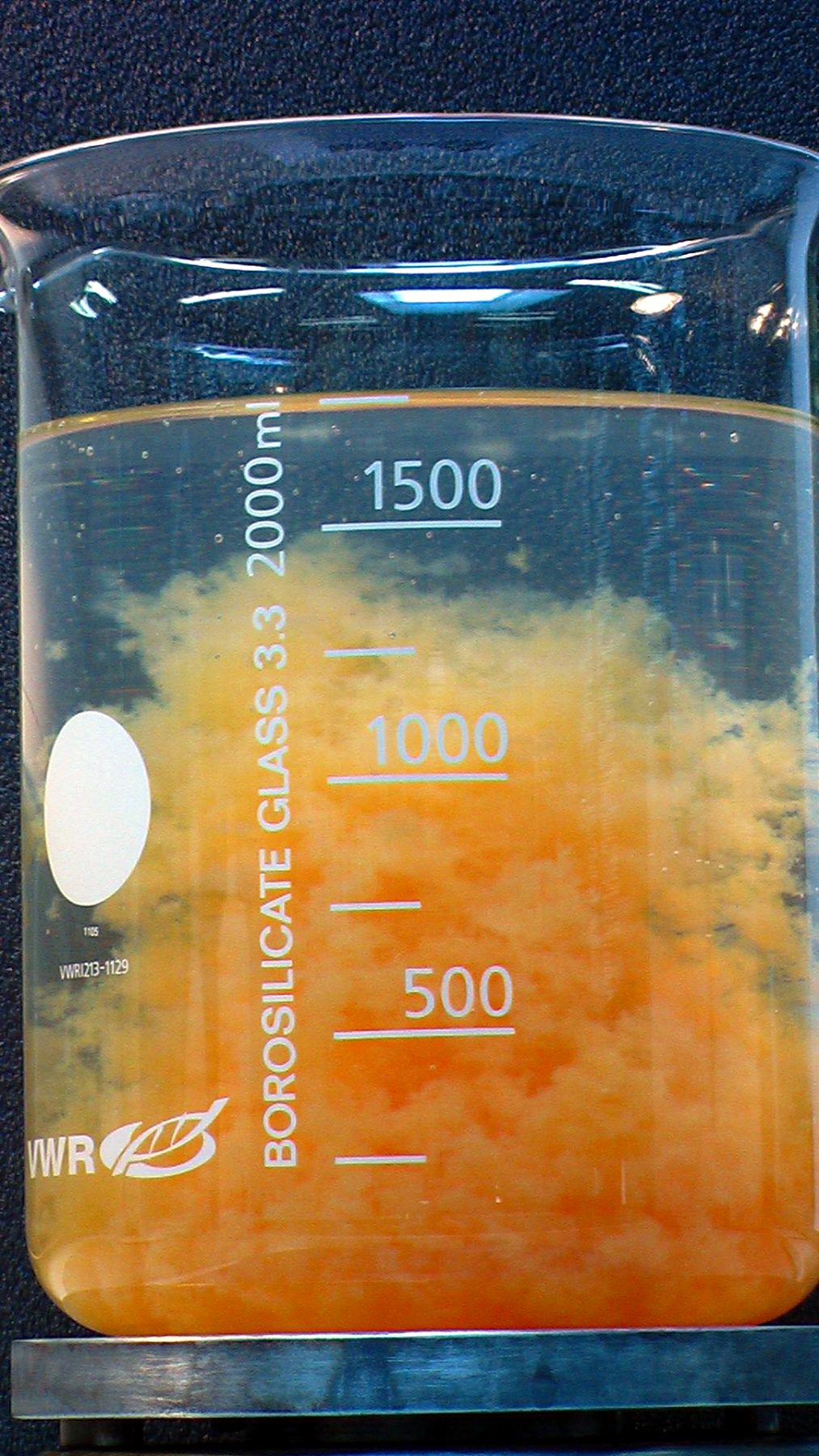Project Description
Industrial Waste Water Treatment

General
Industrial waste water must usually be treated in a waste water treatment plant before introducing it into the sewer or a receiving water course, in order to reduce the dirt load. Normally only a chemical / physical treatment (neutralization, chemical precipitation or flocculation) is sufficient, optionally with an upstream emulsion splitting. Herby the discharge values to be complied are determined by the responsible water authority depending on the industrial sector.
You are wondering how you can treat your waste water optimally?
We would be pleased to advise you in the optimization or planning of a waste water treatment process suitable for your requirements. We offer you liquid products of the Floc series, which are optimally adapted to your waste water treatment.

example of a modern waste water treatment process
Products
Foster Chemicals offers you a wide range of chemicals for waste water treatment, e.g. flocculation aid and flocculants. Splitting agents and defoamers are also available.



waste water flocculation process (immediately, after 20 seconds, after 60 seconds)
The formation of the flocs and the settling rate depends on the pH value of the waste water, the dirt load (type and amount) and the flocculant concentration. The optimal flocculation parameters (pH, concentration) of the waste water treatment should therefore be determined in a laboratory test.
In general, flocculation is recommended in a pH range of 6-8.5 and a flocculant concentration of 0.01-1%. Depending on which impurities (for example, metals or heavy metals) have to be flocked, however a different pH value can also be optimal. This fact applies in particular when several different metals are contained in the waste water. Approximately 4-5% of the basic dosage per hour is recommended as a postdosing value.
waste water treatment with Floc 130
Your Advantages
- support in the analysis resp. design of your waste water treatment
- tailor made products matched to your problems
- no dissolution of a polymer granules with aging time
- liquid products, therefore direct dosage from the delivery container
- generation of large, well drainable flocs
- extensive analysis possibilities of the discharge values in our laboratory
Do you have questions?
We would like to advise you and explain the characteristics and advantages of our products.
Employees of the technical sales service clarify the characteristics of your equipment on site and take up the working parameters.
Make an appointment for a technically oriented presentation.
